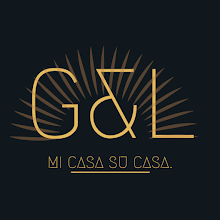A couple of days ago, someone admirable recommended Matt Haig’s bestseller, “The book of comfort”. He succinctly remembers that early-noon class, a backbencher notwithstanding, her rather audible undertones quipped, “Matt Haig will rattle your wits,” and true to those words, the pearly comforting words, some a one-pager, others a single sentence; are becoming a closer companion.
Matt talks about the noun “Mess” in one of the pages and
this piece struck quite home, especially on how this day, the 13th of the first
month of the start of autumn. Trees outside, show the tell-tale signs of hue
flaxen and aureate. The easterly weather is toning down to a cool and bristle
feel. He woke up with the heaviness of an awry feel down the pits of the
stomach. And true to that, two hammers had dropped in a day.
In that piece, Matt quips that the hardest thing to be is
oneself. He points out that we are so overloaded that we cannot always see the
truth of who we are. We turn to distraction sometimes cluttering our lives
deliberately to take our minds off the mess that is inside our heads.
He adds that if we take the external clutter away, we must
face the clutter inside ourselves. All the mess. Matt continues by insisting
that, the more we focus on it, the more we see the order in all the jumbled-up
clutter. Honestly, there is a reason why everything is where it is. We might
want to order the mess a different way, or we might feel the mess is perfectly
fine. But we are imperfect because we are alive.
We came from a mess, and we will bow out a mess. We are
messy because the universe began with a will that floated either from debris or
has always drifted ever since. We are all messy mammals on a messy planet in a
messy cosmos.
Matt, closes his words with a few words, “To deny mess is to
deny who we are.” To see it, to allow it, to forgive it, is to reach a state of
“radical acceptance,” where we can appreciate our so-called flaws or imperfections
as a natural part of existence. He aims to exist with openness and honesty,
rather than shrink himself by trying to lock himself away like the contents of
a cluttered cupboard. He, in short, lives.
For today is not the last day, but an epiphany of his cup
being half full than empty settles. We do not have any control over what people
think of who we are. Albeit all the effort we put in trying to be true, he is
least worried. If the world out there wants to have a fictional version of him
that lives in their minds, let them. He will not drain himself trying to be
understood by people who insist on not understanding him. He is keeping his cup
full. He sides with kindness.
Memoirs of Pest. Autumn #3


Comments
Post a Comment